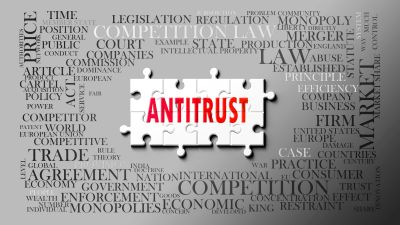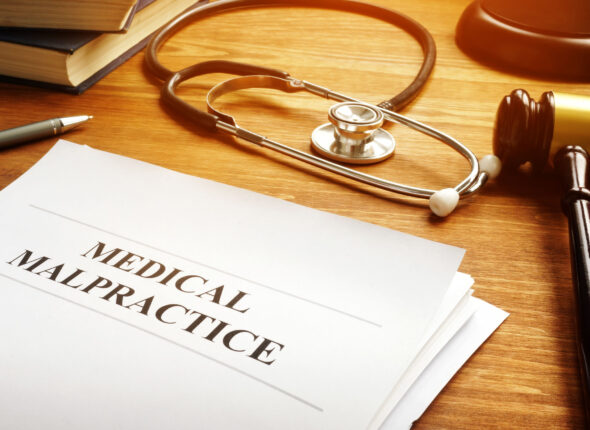Arkansas CLE | Choose Your Plan | Search for a Course

Arkansas MCLE Requirements:
Attorneys in Arkansas must complete 12 hours of AR CLE (Continuing Legal Education) every year, including at least 1 hour of ethics or professionalism. These credits can be earned through Arkansas Continuing Legal Education Board–approved live seminars, webinars, or on-demand courses, offering flexibility to fit busy schedules. Attorneys are required to complete their CLE by June 30 and report compliance by July 31 each year, and failure to meet AR CLE requirements may result in fines or administrative suspension. Click Here for the Detailed AR CLE Article | Click here to Visit the AR MCLE Board.
How to Obtain CLE Credit for a Knowledge Group Course in Arkansas:
To earn CLE credit with The Knowledge Group, complete the video courses, answer the secret word questions, and download your Certificate of Attendance. All courses are approved through reciprocal accreditation in Arkansas. As an accredited provider in California, The Knowledge Group’s courses are presumptively approved.
Attendance Reporting Procedure: Attorneys are responsible for keeping track of their own CLE credits. Certify your attendance as you would normally do directly to your state’s MCLE administrator.
Additional Resources: The Knowledge Group Comprehensive CLE Rules Page or contact CLE support.
Arkansas CLE | Search for Single Courses
2025 HSR Compliance Impact | Live Webinar
Navigating Compliance: How the 2025 Hart-Scott-Rodino Updates Are Impacting Businesses | Live...
Reshaping Antitrust Class Actions | On-Demand Webinar
Gary Harvey President & CEO | Cirque Analytics Brian W. Anderson Associate...
FINRA Arbitration: Issues & Best Practices | On-Demand Webinar
Margaret L. Watson Shareholder | Littler Mendelson P.C. Debra A. Jenks, Esq....
Real Estate Tax Credits Incentives | On-Demand Webinar
Mike Woeber, CPA CEO | Corporate Tax Advisors, Inc. Michael Silvio, CPA...
Medical Malpractice Claim: Critical Issues | On-Demand Webinar
Daniel J. Huff Partner | Huff, Powell & Bailey Kenneth Patterson Partner...
Insurance Subrogation Claims Guidance | On-Demand Webinar
Jennifer Poynter Attorney | Poynter Law LLC Insurance Subrogation Claims: Practical Guidance...
Data Privacy Agreements Breaches | On-Demand Cybersecurity CLE Webinar
Kenneth K. Dort Partner | Faegre Drinker Biddle & Reath LLP Melissa...
EAR, ITAR & OFAC: 2019 Compliance Overview | On-Demand Webinar
Michael V. Dobson Of Counsel | Morrison & Foerster LLP Jen Fernandez...
Trump’s Policy Impact on the Marijuana Industry | On-Demand Webinar
Sarah C. Stoner Member | Eckert Seamans Cherin & Mellott, LLC Peter...
Understanding AR CLE Requirements for Attorneys: A Complete Guide
Attorneys practicing in Arkansas must maintain their professional knowledge and ethical standards through AR CLE—Arkansas’s Continuing Legal Education program. This system ensures lawyers remain competent, ethical, and up to date with evolving laws and legal practices. For both new and experienced attorneys, understanding AR CLE requirements is essential to maintaining an active license and avoiding compliance issues or penalties.
AR CLE Requirements for Arkansas Attorneys
The Arkansas Continuing Legal Education Board requires all active attorneys to complete 12 hours of AR CLE each year. These hours are designed to promote comprehensive professional development and include specific sub-requirements:
• 1 hour of Ethics or Professional Responsibility
• 11 hours of general credit, which may include substantive law or practice management topics
Attorneys involved in litigation or specialized practice areas may choose courses that strengthen trial advocacy, negotiation, or legal writing skills. This structured approach ensures that AR CLE fosters both professional competence and ethical conduct, helping lawyers maintain the highest standards of practice in Arkansas.
How to Complete AR CLE Credits
Attorneys can fulfill their AR CLE requirements through multiple learning formats. Traditional in-person seminars remain a valuable way to interact and network with peers, while online and on-demand courses offer flexibility for attorneys managing busy schedules.
Approved formats for AR CLE include:
• Live Webinars and Virtual Seminars – Participate in real time from any location.
• On-Demand and Self-Study Programs – Complete courses at your own pace.
• Hybrid Programs – Combine live and virtual participation for convenience.
It is important to ensure that courses are accredited by the Arkansas Continuing Legal Education Board. Only approved programs count toward AR CLE hours, so verifying accreditation before registration is critical. Attorneys should also track and manage their credits throughout the year to avoid last-minute compliance issues.
AR CLE Reporting and Deadlines
Reporting AR CLE completion is straightforward but vital. Attorneys must complete their required hours by June 30 of each year, and all compliance reports must be filed with the Arkansas Continuing Legal Education Board by July 31. The Board provides an online system for tracking completed credits, ensuring that attorneys can easily monitor their compliance status.
Failure to complete or properly report AR CLE hours may result in administrative fees, fines, or suspension. Attorneys should maintain records of course completion, including certificates and attendance logs, for at least three years in case of audit. While many providers report attendance directly to the CLE Board, it remains the attorney’s responsibility to confirm accurate reporting.
Value of AR CLE
Beyond fulfilling annual requirements, AR CLE offers significant benefits for professional growth. Attorneys can choose courses tailored to their practice areas or explore new areas of interest, enhancing both their competence and versatility.
For example:
• Corporate attorneys may focus on business transactions, compliance, or intellectual property.
• Family law practitioners can study mediation, custody disputes, and evolving case law.
• Litigators may strengthen courtroom skills, evidence handling, and trial preparation techniques.
Ethics and professionalism courses under AR CLE reinforce essential principles such as client confidentiality, integrity, and civility. By investing time in these programs, attorneys not only remain compliant but also strengthen their ability to provide exceptional service to clients and the community.
Conclusion | AR CLE
In conclusion, AR CLE is more than a regulatory obligation—it is a cornerstone of professional growth and ethical excellence for Arkansas attorneys. By completing accredited courses, tracking credits carefully, and adhering to reporting deadlines, lawyers can maintain compliance while continuously improving their knowledge and professionalism.
Through AR CLE, Arkansas attorneys demonstrate a strong commitment to competence, integrity, and client service—ensuring that the state’s legal community continues to uphold the highest standards of justice and public trust.
For the latest official AR CLE details, forms, and FAQs, attorneys should visit the Arkansas State Unified Court System’s CLE Board website.












